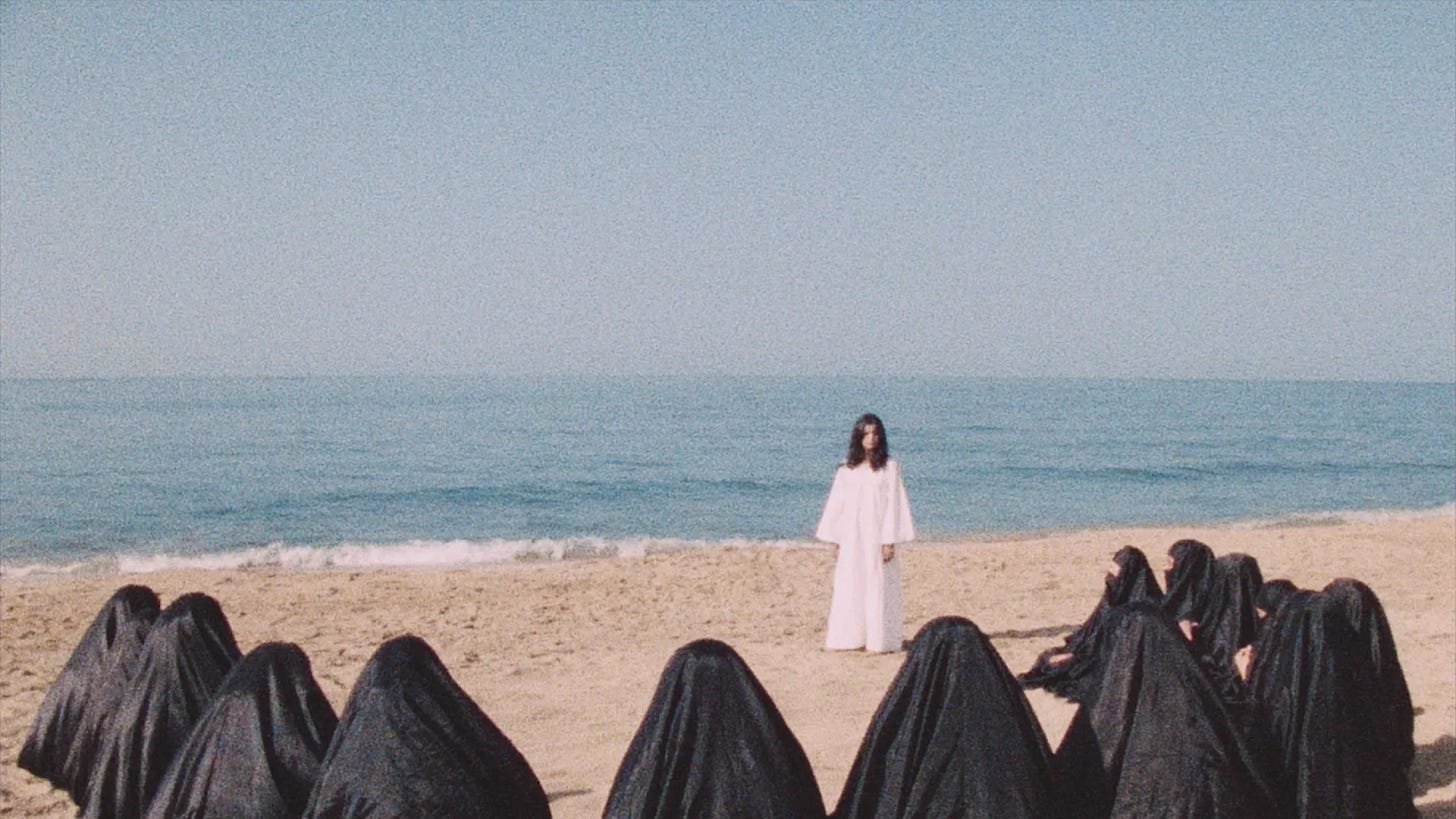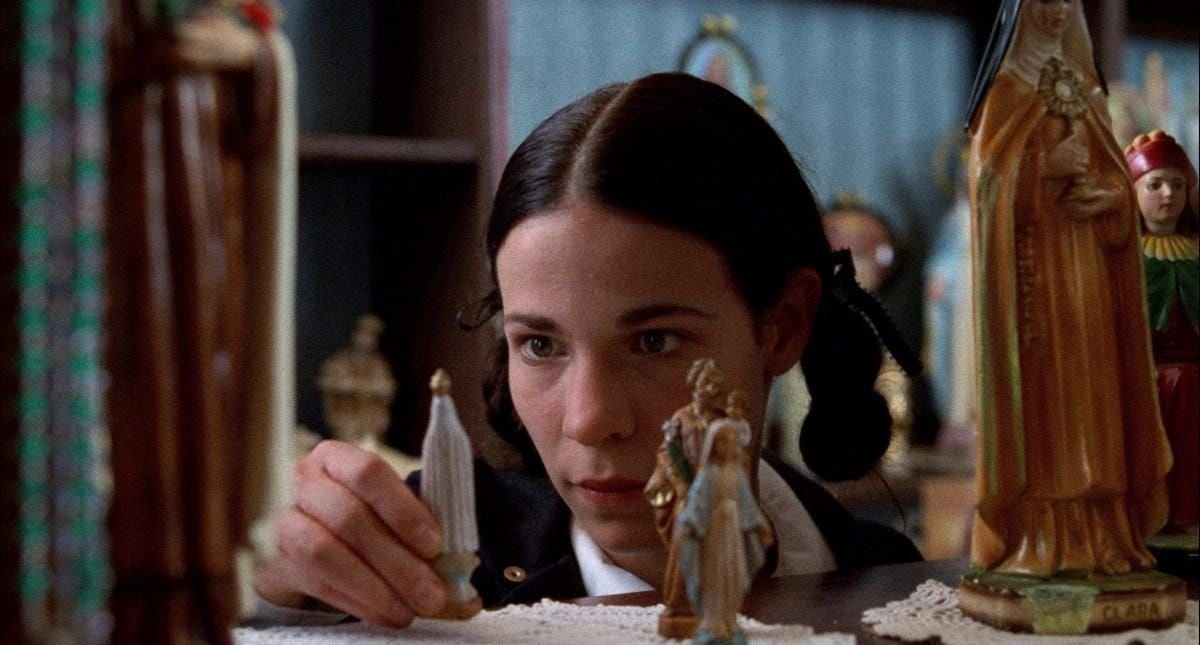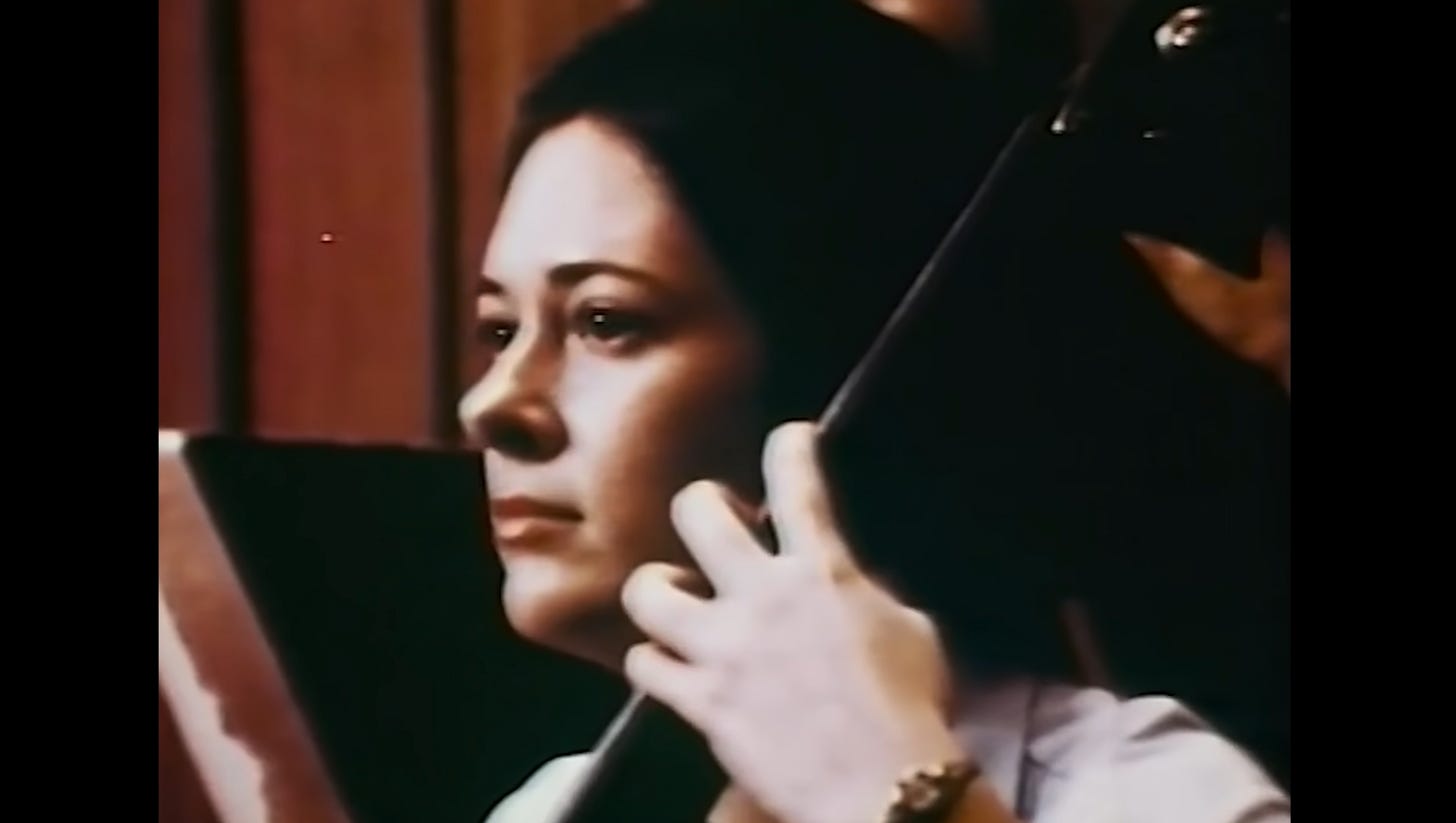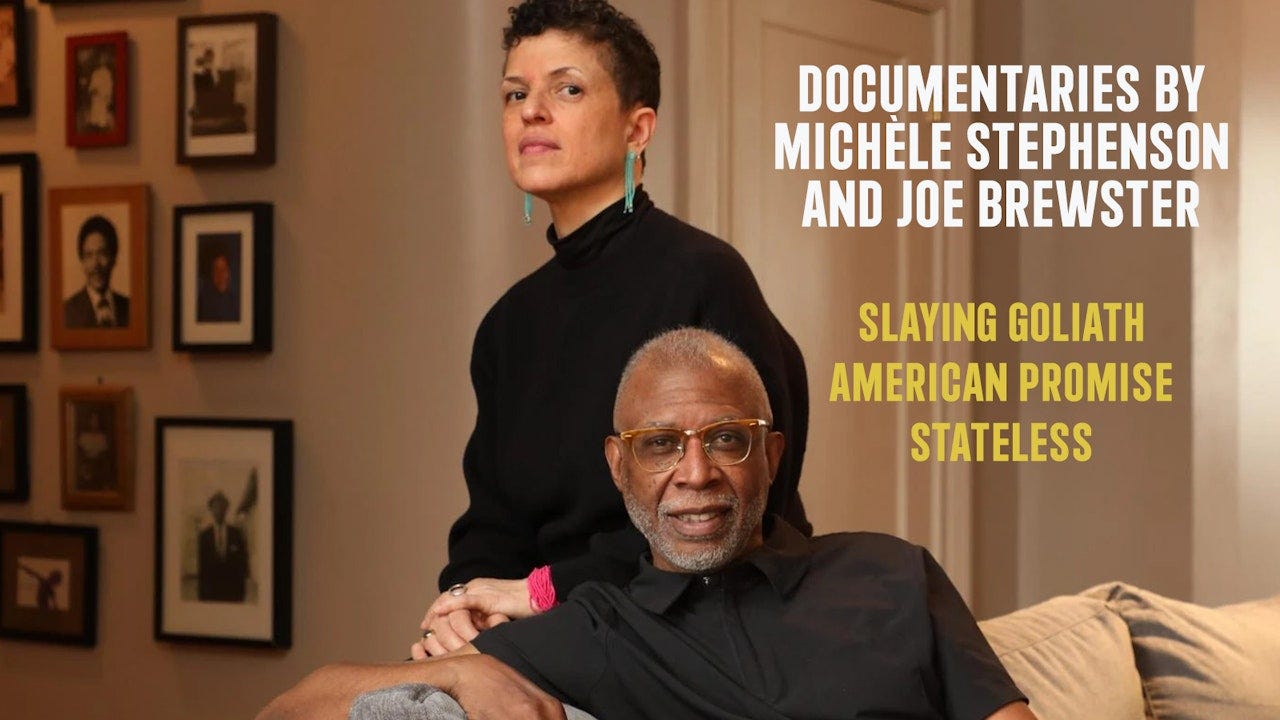This week I am recommending a pair of new restorations from a trailblazing Lebanese filmmaker, one of my favorite films from last year that is now on streaming, three more streaming gems, an Oscar-winning short film, and the films of a husband-and-wife documentary team.
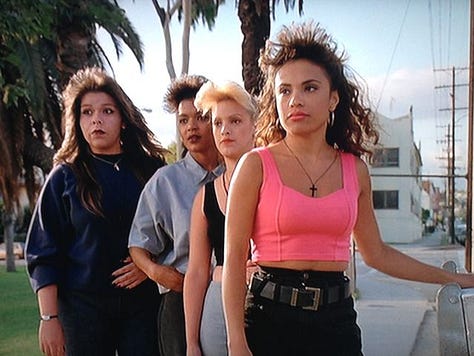

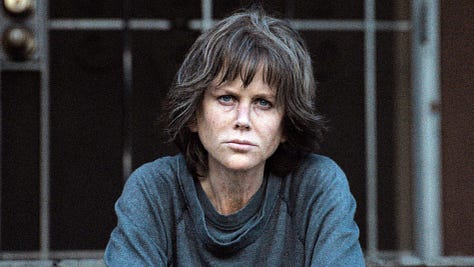
Just a reminder that I will be presenting three films this coming week: This Saturday in New York City I will be introducing a screening of Mi Vida Loca at MoMA in collaboration with The Future of Film is Female at 4pm. I will be signing copies of my book in the lobby starting at 3pm and will be in discussion with writer-director Allison Anders after the screening.



A few days later on March 19th, Allison and I will be back in conversation after a screening of her film Gas Food Lodging at the Academy Museum in Los Angeles, where I will also be signing copies of my book beforehand. Tickets for the screening are here, tickets for the book signing plus screening are here (this one comes with a copy of the book). Then on Thursday, I will be in conversation with director Karyn Kusama after a screening of her film Destroyer at the Frida Cinema in Santa Ana. I will also be signing copies of my book before and after the screening. Lastly, my screening of Me and You and Everyone We Know, which will be preceded by a conversation with Miranda July, at Vidiots in Los Angels sold out in 24 hours!!! but a select number of walk-up tickets are still available. I will be signing my book before and after the screening.
When I first recommended Heiny Srour’s Leila and the Wolves a year and a half ago as my pick from the Palestine Film Index, I had watched a really poor quality rip through dubious means, but could still tell it was a great and necessary feminist film. A few months later I was happy to hear that a restoration of the film was making the festival rounds. Well, friends, I am even happier to report that the restoration is now making the rep cinema rounds along with her earlier film The Hour of Liberation Has Arrived. Both films will have their U.S. theatrical premieres at BAM Cinema in Brooklyn before touring across the country, including a stop here in Chicago at Doc Films. You can read more about these groundbreaking films and also find its release schedule here. I was fortunate to speak with Srour over at Reverse Shot about the restoration and legacy of her films. Here’s an excerpt from the interview:
A lot of women are now speaking out through the medium of cinema. And not just in Palestine and Lebanon, but throughout the Arab world. In Lebanon, they constitute, strangely enough, the majority of filmmakers. Arab women are winning international awards, like my fellow Lebanese filmmaker Nadine Labaki for example. At the same time, the women’s condition is looking backward throughout the Arab world. I was very surprised in Tunisia when women film critics and cinephiles passionately read a text I wrote some 50 years ago. I was even more surprised when a collective of Maghreb women translated this text in Arabic and published it as a trilingual book: Arab, Woman . . . and Filmmaker, which will be sold and autographed by me during the American opening. It confirmed that the high visibility of privileged women is hiding the invisibility of the vast majority of women: the poor, the marginalized, the battered, the underprivileged. Though more severe in emerging countries, it’s a worldwide phenomenon. We should never forget that. I disagree with the feminism for the 5%. I stand for a feminism for the 100%.
I have recommended Marija Kavtaradzė’s romance Slow many, many times on this newsletter already and I will probably do it again because I love this movie with all of my heart. It’s now streaming on Mubi in the U.S., so if you haven’t watched it yet, please, please, please do yourself a favor and watch it now!!! Here’s a bit from my interview with Kavtaradzė from last April about the scene in the screencap above:
I really wanted that feeling of being with many people, maybe, but you still are very much just together. When I wrote that scene, I wrote that she was copying his movement because she didn’t want to dance, but there was nothing in the screenplay about the mirror. But I knew I wanted to shoot in that bar, and when we went to scout the location, the cinematographer was like, “Oh, we’ll shoot, so see just him in the mirror?” And I said, yeah. [Laughs]. Everything felt like it had to be shot like that. It made sense. We don’t need more shots. We just see him and her and everything in that one shot.
In the screenplay, it seemed like such a short scene, but it became bigger when we filmed it. We shot it at the beginning of the second week, so maybe shooting day number six or seven. It was one of those scenes where you shoot it, and then afterward you realize something more about the film, so it’s easier to go further. The actor also felt that there was something special in this scene.
I have also recommended Nancy Savoca’s Household Saints before as well, but it, too, has finally made its way to streaming on Kanopy! Based on a novel by Francine Prose, the film features a beguiling performance from Lili Taylor as a girl whose spiritual calling puts her at odds with the world around her. It also stars Tracey Ullman and Vincent D'Onofrio as her parents and a young Michael Imperioli as her love interest. Here’s a bit from my interview with Savoca from last year:
I feel like the greatest gift I got from Francine was this novel that haunted me, that did not allow me to sit with a definitive ending, so that I could play with it in my mind and say, yes, and, or both, or I don’t know, depending on what day I wake up. Honestly, if you ask me today, I’ll tell you one thing, and then tomorrow I’ll have another thought that came to me, because it’s that rich. Sometimes it’s contradictory. What I think about this ending, and I feel again, I’m older now, so I don’t need to be so sure about things. I feel very comfortable now with realizing that I don’t know what Teresa’s story leaves people with. And I really, really love that people can wonder, too. I’ve been asked the question a million times. What happens at the end? What’s her deal? You know, what is she? And I usually respond, well, what do you think? It’s not a trick question. Because I think there are so many ways to answer that question. In so many ways, she’s a diamond, you know?
Somehow I have never highlighted Gillian Robespierre’s excellent abortion rom-com Obvious Child on this newsletter before and since bodily autonomy in the U.S. continues to be eroded, as is access to safe abortions, I felt like it was time to recommend this film. The film stars Jenny Slate as a twenty-something standup comic named Donna who hooks up with a guy named Max (Jake Lacy) after a devastating breakup only to discover she is pregnant from what she thought would be a one night stand. After making an appointment for her abortion, Max comes back into her life and when Donna starts to have feelings for him, she has to figure out the best way to tell him about her decision. It hits all the beats you want from a rom-com — a cute meet, accidental re-meets, sweet dates, misunderstandings, etc. — but it also has a very stridently feminist and anti-patriarchy bent that I think it’s about time a) we all rewatch the film and b) maybe start making more art like this that pushes back against the erosion of our rights. You can stream the film now on PlutoTV.
Wedding season is about to be upon us so I am here to recommend Leslye Headland’s blistering dark comedy Bachelorette. Adapted by Headland from her own play, it stars Kirsten Dunst, Lizzy Caplan, and Isla Fisher as three messy women who reunite for the wedding of a childhood friend (Rebel Wilson), and throw one of the worst, most disastrous bachelorette parties in history. Fair warning: this is a acid-tongued film, so if that’s not your vibe you will probably not enjoy this film. You can stream the film now on Tubi.
A few weeks ago Molly O’Brien’s documentary Only Girl In The Orchestra, about her aunt, the first woman to join the New York Philharmonic, won the Oscar for Best Short Film. I missed it when it premiered on Netflix in December and only caught up with it after its big night. One thing I also learned was the Orin is the daughter of actors George O’Brien — star of F. W. Murnau's Sunrise: A Song of Two Humans — and Marguerite Churchill, who is probably best known for starring opposite John Wayne in The Big Trail, his first lead role. The documentary goes through Orin’s life as a musician, as well as the careers of her parents. I’m not sure it’s Oscar-worthy, but she is quite a character and fun to follow for a breezy 35 minutes. You can stream the film now on Netflix.
I haven’t had the time to check out these docs yet, but I really enjoyed their latest film, Going to Mars: The Nikki Giovanni Project, so I am looking forward to catching up on these. Here’s the description from Criterion Channel where they are currently streaming:
In their urgent and empathetic documentaries, husband-and-wife team Joe Brewster and Michèle Stephenson explore issues of identity, injustice, and activist resistance in the Black diaspora. From American Promise, an intimate chronicle of two Black boys (one their own son) navigating the pitfalls of the American educational system remarkably filmed over the course of thirteen years, to Stateless (a solo directorial effort from the Haitian-Panamanian Stephenson), a devastating look at the effects of racist nationalism upon Haitians in the Dominican Republic, these unique films blend powerfully emotional storytelling with galvanizing sociopolitical insight, and Slaying Goliath, which offers a rare look into the world of amateur youth basketball through the eyes of the Harlem-based fifth-grade team the New York Select Huskies, whose players include the son of filmmakers.
The Directed By Women Viewing Guide is free for Women’s Month, but if you would like to keep reading each week, please consider upgrading your subscription:





